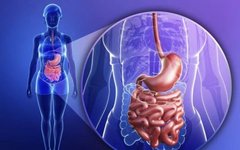Transmission: Moxibustion | Gua Sha | Meridians | Acupuncture Points | Health Preservation | Regulation | Wellness
Traditional Chinese Medicine (TCM) posits that the spleen and stomach are interconnected through the meridians, forming a relationship of mutual dependence.
Physiologically, the spleen and stomach work together; the stomach is responsible for receiving and accepting food, while the spleen governs the transformation and transportation of nutrients. The relationship is described as “the spleen facilitates the stomach in its distribution of fluids,” collectively completing the digestion and absorption of food and its refined distribution throughout the body, thus nourishing all organs. Therefore, the spleen and stomach are referred to as the “foundation of postnatal life.” The stomach qi is primarily descending, while the spleen qi is ascending; when the spleen qi ascends, the essence of food is distributed; when the stomach qi descends, the waste and impurities are expelled. The stomach prefers moisture and dislikes dryness, while the spleen prefers dryness and dislikes moisture. The harmonious interaction between these two organs, one yin and one yang, one solid and one hollow, one ascending and one descending, is essential for completing the tasks of digestion, absorption, transportation, and refinement.
Pathologically, the spleen and stomach influence each other, often manifesting as simultaneous disorders. For instance, if the clear qi does not ascend, it will inevitably lead to the turbid qi not descending; if the turbid qi rises, it will obstruct the ascent of the clear qi, resulting in symptoms such as poor appetite, belching, abdominal distension, and indigestion. Therefore, treatment often involves addressing both the spleen and stomach.
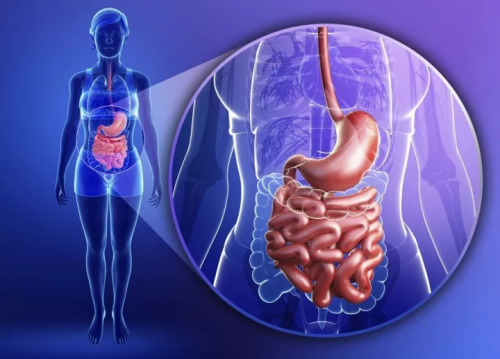
The Spleen Governs Transformation: This is primarily reflected in two aspects: the transformation of the essence of food and the transformation of moisture. Food undergoes digestion in the stomach and small intestine, and the refined substances are transformed and absorbed by the spleen, then transported to the heart and lungs, nourishing the entire body. This normal function is referred to as “spleen qi being robust and functional”; conversely, when the spleen fails to function properly, it is termed “spleen qi deficiency.” When the spleen fails to function, symptoms such as diarrhea, loose stools, poor appetite, weight loss, fatigue, and malnutrition may arise, hence the saying, “the spleen is the source of qi and blood production” and “the spleen is the foundation of postnatal life.” Additionally, the spleen promotes the metabolism of fluids and prevents stagnation; if the spleen’s ability to transform moisture is impaired, it can lead to conditions such as dampness and phlegm. The spleen’s primary function of transformation is to ascend the clear; when the spleen qi ascends, hearing and vision are clear, and the internal organs maintain their proper positions. If the spleen qi does not ascend or sinks, symptoms such as dizziness, tinnitus, chronic diarrhea, prolapse, and organ descent may occur.
The Spleen Governs Blood: This refers to the spleen’s ability to regulate blood flow within the vessels without allowing it to overflow outside the vessels. Qi is the commander of blood; when qi is strong, it can regulate blood. A robust spleen qi ensures the generation of qi and blood. If the spleen qi is weak, it cannot regulate blood, leading to symptoms such as hematuria, hematochezia, and menorrhagia, known as “the spleen does not govern blood.”
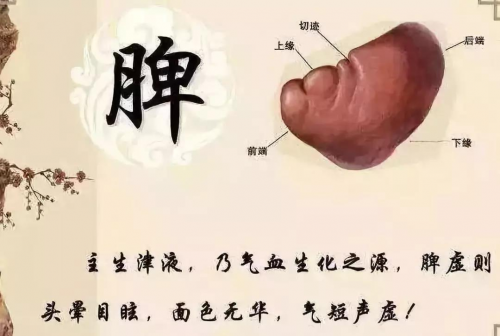
The Spleen Governs Muscles and Limbs: The spleen transforms the essence of food, nourishing the muscles and limbs, leading to well-developed muscles and strong limbs. Conversely, if the spleen fails to function properly, qi and blood production is insufficient, leading to muscle atrophy and weakness in the limbs. This is the meaning of the statement in the “Su Wen: Discussion on Atrophy” that “the spleen governs the muscles of the entire body.”
The Spleen Opens to the Mouth, Its Manifestation is in the Lips: The relationship between the body’s diet, taste, and the spleen’s transformation is closely linked. When the spleen qi is robust, appetite is strong, and taste is normal. When the spleen fails to function, symptoms such as poor appetite, abnormal taste (such as food not being fragrant, blandness, or excessive sweetness), and pale, dry lips may occur.
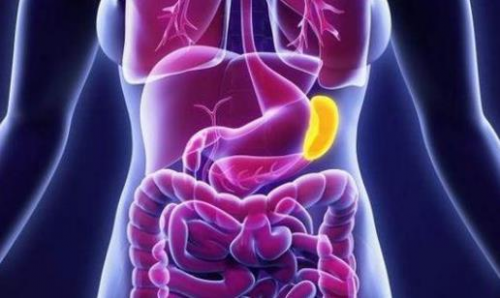
The Spleen and Stomach are Interconnected: The spleen and stomach are interconnected through the meridians, forming a relationship of mutual dependence. Physiologically, they work together; the stomach governs reception, and the spleen governs transformation; the stomach qi descends, and the spleen qi ascends; the stomach prefers moisture and dislikes dryness, while the spleen prefers dryness and dislikes moisture; the two organs are one yin and one yang, one solid and one hollow, one ascending and one descending, complementing each other to complete the tasks of digestion, absorption, transportation, and refinement. Pathologically, they influence each other, often manifesting as simultaneous disorders, such as when the clear qi does not ascend, leading to the turbid qi not descending; if the turbid qi rises, it will obstruct the ascent of the clear qi, resulting in symptoms such as poor appetite, belching, abdominal distension, and indigestion, which often require simultaneous treatment of both the spleen and stomach.
According to TCM’s theory of organ manifestation, the spleen and stomach belong to the earth element and are part of the middle jiao, jointly bearing the responsibility of generating qi and blood. Thus, the spleen and stomach are both considered the “source of qi and blood production,” indicating that the body’s qi and blood (equivalent to what we refer to as energy) are transformed from food by the spleen and stomach. The saying that the spleen and stomach are the “foundation of postnatal life” emphasizes their fundamental role in human survival. After birth, growth, learning, work, and recreation all require substantial energy, which must be derived from food, and this transformation into qi and blood energy can only occur through the cooperative functioning of the spleen and stomach.
The Stomach, is the digestive organ located below the diaphragm, connecting to the esophagus above and the small intestine below. The upper opening of the stomach is the cardia, and the lower opening is the pylorus. The stomach is also referred to as the gastric cavity, where “cavity” in ancient pronunciation is similar to “tube,” indicating that the upper part of the stomach connects to the esophagus, and the lower part connects to the intestinal tube, thus it is named the gastric tube (cavity).
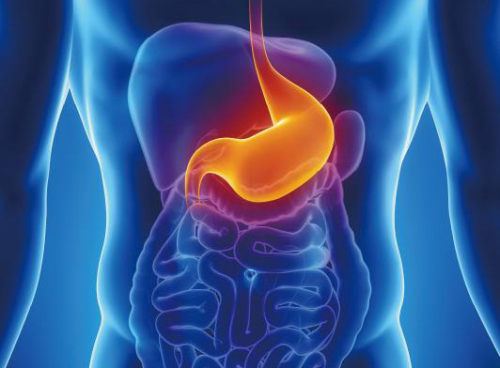
The Stomach Governs Reception: Reception refers to the ability to accept and contain. Fermentation refers to the initial digestion of food in the stomach, forming chyme. “When food enters the mouth, it passes through the esophagus and is contained in the stomach, hence the stomach is referred to as the ‘great warehouse’ and ‘sea of food and fluids.'” The physiological activities of the body and the transformation of qi, blood, and fluids rely on the nutrients from food, thus the stomach is also called the “sea of food and fluids for qi and blood.” As stated in the “Ling Shu: Jade Plate,” “What humans receive as qi comes from food; what food is poured into is the stomach; the stomach is the sea of food and fluids for qi and blood.” The food contained in the stomach, after fermentation, is passed down to the small intestine, where its essence is transformed and absorbed by the spleen to nourish the entire body. Therefore, although the stomach has the functions of receiving and fermenting food, it must cooperate with the spleen’s transformation function to convert food into essence, generating qi, blood, and fluids to nourish the body.
The nutritional intake and the transformation function of the spleen and stomach regarding food and fluids are crucial for maintaining the body’s life activities. Thus, the “Su Wen: Discussion on Human Qi” states, “Humans rely on food and fluids as their foundation”; the “Su Wen: Discussion on the True Storage of the Five Organs” states, “All five organs derive their qi from the stomach; the stomach is the foundation of the five organs.” This indicates that the strength or weakness of stomach qi is related to the life activities and survival of the human body. Li Dongyuan in the “Treatise on the Spleen and Stomach: Discussion on the Transformation of Spleen and Stomach Deficiency and Excess” states, “The fullness of original qi is due to the spleen and stomach qi being unharmed, allowing it to nourish the original qi. If the stomach qi is weak, and food intake is excessive, the spleen and stomach qi will be harmed, and the original qi cannot be replenished, leading to the onset of various diseases.” In clinical practice, the diagnosis and treatment of diseases place great emphasis on stomach qi, often considering “preserving stomach qi” as an important treatment principle. Therefore, the “Jing Yue Quan Shu: Miscellaneous Evidence on the Spleen and Stomach” states, “Anyone wishing to assess illness must first assess stomach qi; anyone wishing to treat illness must always consider stomach qi. If stomach qi is unharmed, there is no need for concern regarding other issues.”
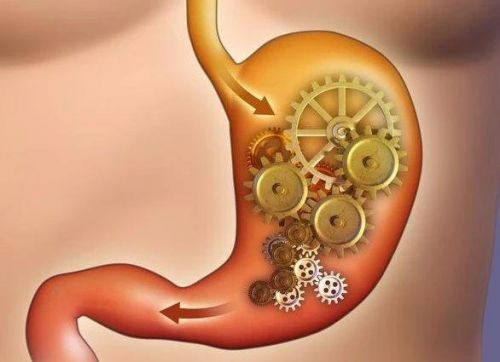
The Stomach Governs Descending: The stomach is the “sea of food and fluids”; food enters the stomach, and after fermentation, it must descend into the small intestine for further digestion and absorption. Thus, the stomach governs descending, and descending is essential for harmony. In TCM’s theory of organ manifestation, the physiological functions of the entire digestive system are summarized as the spleen ascending and the stomach descending. Therefore, the stomach’s descending function also includes the small intestine’s role in transporting food residues to the large intestine and the large intestine’s function in processing waste.
The stomach’s descending function is crucial for expelling impurities; if the stomach fails to descend, it can affect appetite and lead to symptoms such as bad breath, abdominal distension, or pain, as well as constipation. As stated in the “Su Wen: Discussion on Yin and Yang Correspondences,” “If turbid qi is above, it causes true distension.” If the stomach qi not only fails to descend but also reverses, symptoms such as sour regurgitation, nausea, vomiting, and belching may occur.
Copyright Notice: If there are any copyright issues, please contact us for resolution.
Your attention and sharing will help more families learn about health preservation.Everyone can be the master of their own and their family’s health
 Use moxibustion to protect health, and achieve wealth and success with altruism!Scan for detailed consultation↓↓↓
Use moxibustion to protect health, and achieve wealth and success with altruism!Scan for detailed consultation↓↓↓ 

